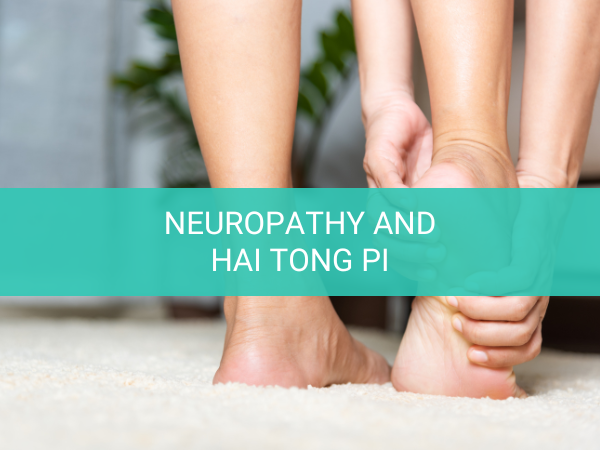In Chinese medicine, neuropathy is a result of excess wind or dampness, which are common pathologies that can cause a variety of health conditions, according to practitioners. Chinese medicine recommends certain herbs to resolve neuropathy, including Hai Tong Pi. Specifically, Hai Tong Pi is recommended for lower body neuropathy.
An important consideration for Chinese medicine practitioners is where the neuropathy is located, as this will guide treatment. For lower body neuropathy (which predominantly affects the legs), herbal formulas that include Hai Tong Pi are often recommended because they target the Qi meridians most likely to be affected by neuropathy.
What Causes Neuropathy According to Chinese Medicine?
Neuropathy expresses itself slightly different in every person, but burning, tingling or other unpleasant sensations are characteristic of the condition.
Chinese medicine considers these sensations to be a sign of excess or deficient wind or dampness, both of which can interfere with Qi flows through the body’s meridians. As the body’s essential life energy, Qi is responsible for driving critical biological functions. It flows through the body’s meridians (or channels) that link organs and organ systems together in an interconnected network.
If external pathologies like wind and dampness invade these meridians, they can block or slow the Qi’s movement and cause an array of symptoms – including neuropathic pain and sensations. Practitioners aim to resolve this with the use of herbs like Hai Tong Pi.
How Hai Tong Pi Can Help Those with Neuropathy
Hai Tong Pi is a bitter herb that targets the meridians most often involved in lower body neuropathy – the liver, spleen, and kidney channels. These channels run down the legs and are therefore entry points for any herbal therapies designed to target the lower extremities.
When administered, Hai Tong Pi enters these channels and works to dispel wind-dampness. This can unblock Qi flows in these channels and relieve any underlying neuropathy.
Like with all Chinese herbal formulations, it’s essential that patients first consult with an experienced practitioner. There are risks associated with unregulated herbal dosing, but an expert practitioner will mitigate these risks – by examining the patient thoroughly before prescribing herbs and ensuring proper dosing.
- What Does Acupuncture Do for Your Body? - September 26, 2025
- Finding a Licensed Acupuncturist in Houston - November 20, 2024
- Can Acupuncture Help with Weight Loss - October 28, 2024

